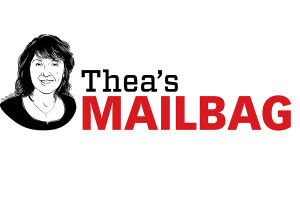Credit guru Thea Dudley has spent more than 30 years in LBM credit management. Now she’s here to answer your credit and collection questions. Got a question for her mailbag? Contact Thea at theadudley@charter.net
Dear Thea,
I work for a supply house. Currently, we have a 10th prox payment term for most of our customers in our credit agreement, but we don’t start checking on it until the 30th of the month. Is this typical? Should we be sticking to the 10th or just making it a straight request to be paid in 30 days? Should this depend on our customers (currently we have some with 60-day terms and some on 14 day terms)? What is normal?
Signed, Dithering in Duluth
Dear Dithering:
Normal is overrated. I think the bigger questions are:
- What works for your company?
- What are the current terms you are offering?
- What deviations is your company willing to offer?
I personally am a big fan of the prox term. Any prox term is good, as the date tied to it really doesn’t matter. Prox terms allow both the customer and distributor to have a successful relationship. Using 30- or 60-day terms sets everyone up for frustration because, on any given day, the customer could have an invoice coming due and thus there’s a possibility you’ll need to put the account on hold. That results in credit having to look at the account and decide if they should release it, or otherwise call because every day something could be coming due. Such a system is exhausting and impractical. I don’t know of any company that cuts checks daily.
Yes, I know the argument: “Thea, the customer wants 30 days because they want the FULL 30 days to pay.” OK … Are they prepared to live up to their end of the deal and crack open that checkbook on day 31? EVERY day 31? Because that is how that cookie crumbles when you go that route.
There are a couple of things you didn’t mention, dear Dithering. What is the cutoff date from your prox term? Is it the end of the month? The 25th of the month? When you say you don’t start checking on them until the 30th of the month, are you giving a grace period from the 10th to the 30th?
If the invoice is due on the 10th, why are you waiting at least another 20 days before “checking” on it? if the bill is due on the 10th, when do you consider it to be unacceptably past due? Thirty full days after the due date? These things matter.
I would love to say there are standard terms in our industry. Net 30 is popular, but I’ve also seen net 45 and net 60. Ditto for 10th prox, but some companies I know do the 15th or 25th. A few throw a discount on that and include a cut off date. I also have seen the ridiculous and assuredly confusing “10th prox net 11,” which means payment is due on the 10th but on the 11th, you’re late, pumpkin.
Don’t even get me started on extended terms. I really hate giving those to contractors, as it often means they’ll spend my my company’s money elsewhere and not pay me. (Commercial jobs sometimes as an exception.)
Anyway, Dithering, your term is right in line with the standard offerings. What is not clear is why you wait until the 30th to starting following up on your money. You need to figure out what is acceptable to your company—In other words, how past due is past due?
Ever hear the saying, “a little bit pregnant?” There’s no such thing; either you are or you aren’t. It’s the same with bills: You are either past due or you aren’t.
The response usually heard by credit managers everywhere is “Well, the invoice just went past due, so it is not a big deal.” Let’s say I buy into that train of thought. My reply would be, “When do you think it will be a big deal and you will be paying it? What is the ETA on this payment, since you’re treating my due date as a suggestion? How about we have the same attitude about when your material will show up? ‘No big deal, it will arrive sometime.’”
People, just like customers, will live up to your expectations. If the expectation is you are OK with them taking extended terms in the form of paying you 20 to 30 days late, they will. That’s probably because they are paying the more assertive credit manager who is holding them accountable to live up to the agreement.
Remember, dear Dithering, what you will allow will continue. If you are okey dokey with the current status quo, then let it roll on. If you are not, make those changes.

